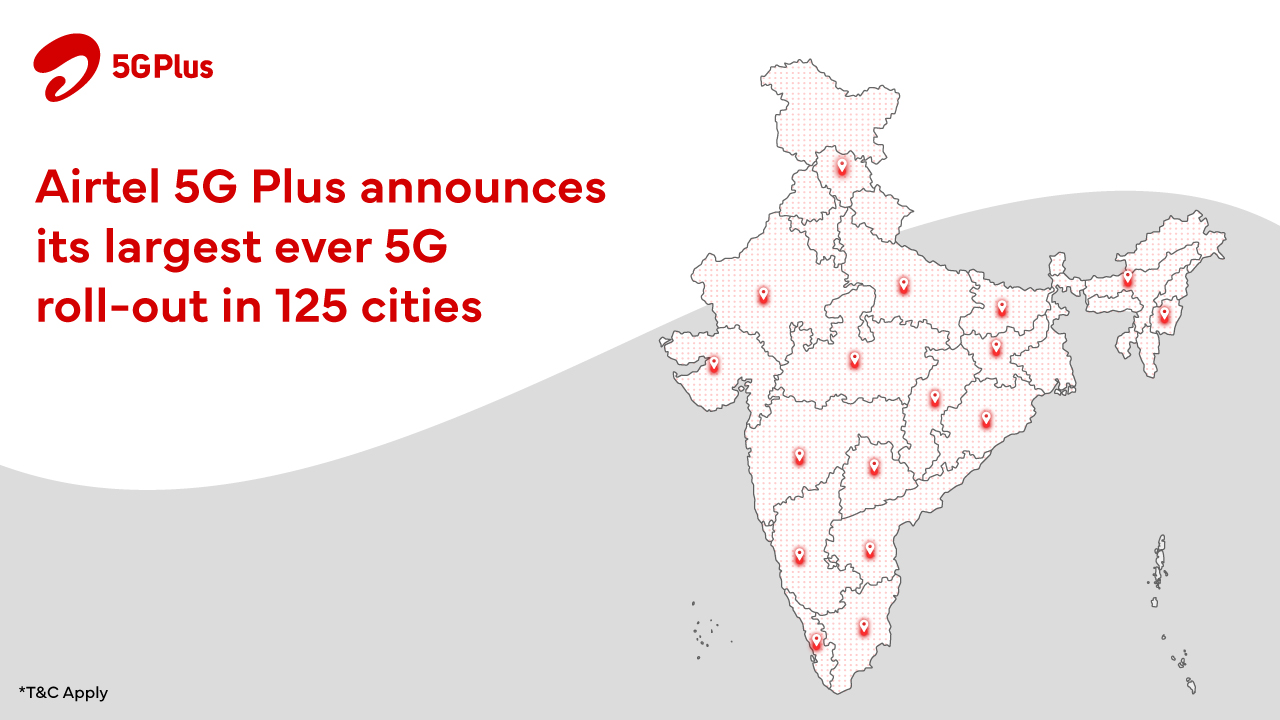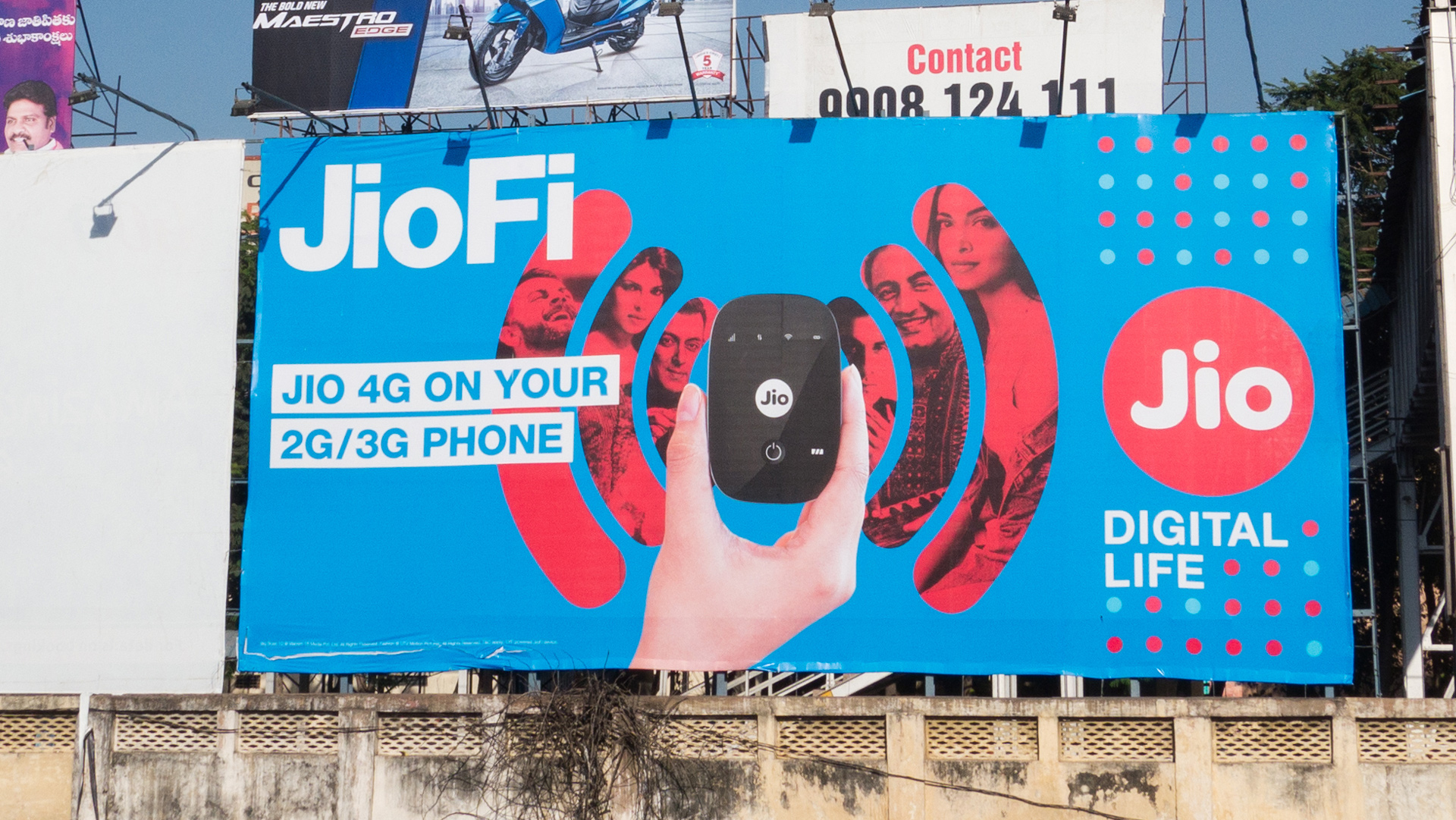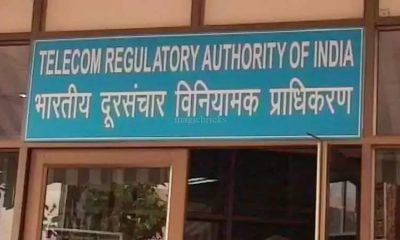Mobile Services
Spectrum should not be auctioned for TV Channels

NEW DELHI: Broadband India Forum (BIF) today attended the ‘open house’ conducted by Telecom Regulatory Authority of India (TRAI) . The open house was attended by leading Industry experts including representatives of the TV Broadcast and Satcom ecosystem.
This was a timely consultation on an important issue related to the India broadcasting sector, which has already become one of the mainstays of India’s services sector and in turn plays an important role in the socio-economic development of the country.
The Consultation Paper on this subject was issued by TRAI in third week of December 2017 and comments were requested by end January 2018. BIF has deliberated the various issues brought out in the Consultation Paper in detail with relevant stakeholders and has also provided its views of the Forum on these issues, to TRAI. Among the issues raised in the TRAI Consultation Paper, the pricing / auction of satellite spectrum / channels and possible regulation of the uplinked channels under Indian Telegraph Act 1885 are highly significant. Also, the issue of imposition of “Adjusted Gross Revenue” (AGR) based license fee and auctioning of TV channel permissions per se can have a cascading effect on India’s broadcast industry.
After much deliberation, BIF is of the view that satellite TV channels and ‘teleports’ should be allowed light touch regulation. Towards this objective, the TV channel permissions, which are issued by Ministry of Information and Broadcasting (MIB) and satellite spectrum for ‘Teleports’ should continue to be assigned through administrative mechanism, and not through auction of satellite TV channels or spectrum.
T.V. Ramachandran, President, Broadband India Forum said, “Before deciding the license fee structure for satellite TV channel permission holders and teleport licensees, it is important to discuss the nature of broadcast business and allied sectors such as teleports and Satcom. The satellite TV broadcasting business requires is growing at a tremendous pace and creating any artificial barriers at this stage should be avoided. Moreover, the operations and maintenance of linear TV channels and teleports is capital intensive with long gestation periods. As such a teleport operating firm may require longer periods to break even. Further, it is the foundation for growth of satellite TV broadcasting sector in India, and export of broadcast satellite communication services from India. Moreover, unlike in the case of terrestrial spectrum, there is also no scarcity of teleport or space spectrum. Basis these criteria alone, one can argue that license fee structure should be simple and the government should not consider auctioning either the satellite TV channel permissions or teleport spectrum licenses.”
One of the issues raised in the Ministry of Information and Broadcasting (MIB) in August, 2017, is whether auctioning a channel as in the case of FM Radio sector, should be adopted as a way to increase the revenue to the Government. Presently, under the extant policy framework, for uplinking of a satellite TV Channel from Indian soil there is a fixed permission/ license fee and for downlinking of a satellite TV channel, uplinked from India, there while there is also a fixed license fee.
The Consultation Paper also mentioned spectrum auctioning for satellite TV channels as one of the alternatives. In this regard, the satellite spectrum can be reused by multiple satellites in geo-stationary orbit. The C-Band (4GHz downlink and 6GHz uplink) and Ku band (11/12 GHz downlink and 14 GHz uplink) Satellite spectrum can be reused by more than 30 satellites, to cover Indian sub-continent. Hence, largely there is no scarcity of available capacity / spectrum for this purpose. Further, the satellite networks have to be coordinated internationally, in accordance with ITU’s Radio Regulations, which have the force of a binding international treaty. Unlike the national air-space, the GSO orbit and the satellite spectrum are natural resources, available to all mankind to be equitably shared among countries. Auctions are therefore inconsistent with the International Nature of Satellite Communications and satellite license auctions would not promote spectrum efficiency. For these reasons, auctioning of satellite spectrum has generally not been supported by countries.
It is important to note that the regulation of TV channels,’ the carriage part (teleports / uplinks) is licensed and regulated by DoT, under the Indian Telegraph Act, 1885, whereas the ‘content and programming’ aspect is regulated by the Ministry of I&B. The broadcasting entity, which is the owner of the ‘content / program’, is separate from the teleport operator. Meaning thereby that a holder of a linear TV channel permission from MIB is not a licensee under the Telegraph Act.
During the early years of satellite TV in India, in the early 1990s or over 20 years ago, broadcasters uplinked their content from abroad. It was the desire of the government to bring the uplinking to India and also to make India as a ‘Teleport Hub’. Now most of the Indian channels are being uplinked from India. To encourage the Broadcasters to continue uplinking of their channels from India, these services / facilities have to be competitive globally, both in cost and quality.
5g
Airtel announces its largest ever 5G roll-out in 125 cities

NEW DELHI: Bharti Airtel, India’s telecommunications services provider, today announced the launch of its ultra-fast 5G services in 125 cities. Airtel 5G Plus service is now available to customers in over 265 cities in the country.
Airtel 5G Plus has three compelling advantages for customers. First, it runs on a technology that has the widest acceptance in the world with the most developed ecosystem. This ensures that all 5G smartphones in India seamlessly work on the Airtel network. Second, the company promises to deliver the best experience – between 20 to 30 times higher speeds than today coupled with brilliant voice experience and super-fast call connect. Finally, Airtel 5G Plus network will also be kinder to the environment with its special power reduction solution. Powered by the reliable Airtel network infrastructure, Airtel 5G Plus will provide superfast access to High-Definition video streaming, gaming, multiple chatting, instant uploading of photos et all.
Commenting on the launch, Randeep Sekhon, CTO, Bharti Airtel said, “5G has revolutionized the world of internet, ushering new era of connectivity and communications that will prove to be a game-changer for the country. At Airtel, we remain committed to delivering the highest quality of network and service to our customers as we roll-out 125 more cities today. Airtel was the first in the country to offer 5G services in October 2022, and today’s mega launch is our promise to connect every Airtel customer in the country with ultra-fast Airtel 5G Plus. Our 5G rollout is on track to cover all towns and key rural areas by March 2024.”
Airtel 5G Plus service availability will continue to rapidly expand – including service in all towns and villages in the country soon – as the company is working towards offering nationwide coverage. Airtel is now offering its 5G services in every major city from the upper northern city of Jammu to the southern tip of Kanyakumari.
In the last one year, Airtel has demonstrated the power of 5G with a host of powerful use cases that will change the way customers lead their lives and do business. From India’s first live 5G network in Hyderabad to India’s first private 5G network at the BOSCH facility in Bengaluru to partnering with Mahindra & Mahindra to make its Chakan manufacturing facility, India’s first 5G enabled auto manufacturing unit, Airtel has been at the forefront of 5G innovation.
5g
Apple rolls out beta programme for iPhones to enable 5G services

NEW DELHI: Apple Inc has rolled out a beta programme to enable 5G on Apple devices as the upgrade lets users try out pre-release software.
This software upgrade enables 5G access on Apple devices, as and when service providers Jio, Airtel and Vodafone enable 5G network access, sources said.
Apple Users have to enrol for the Beta Programme on the website, install a profile and download the software.
Jio users using iPhone 12 and above, in cities where JioTrue5G has been rolled out, will be invited to the Jio Welcome Offer. Jio Welcome Offer provides unlimited 5G data at up to 1 Gbps speed to users at no additional cost. However, there is a condition that prepaid users must be on active Rs 239 and above plan. All Postpaid users are eligible for this trial.
Airtel is not providing any special 5G offer like Jio to their users. In the cities/areas in which the Airtel 5G network has been launched, users can trial 5G services as a part of their existing plan, once they have updated the latest Apple Beta software.
While an email sent to Apple did not solicit an immediate response, the firm had last month stated: “We are working with our carrier partners in India to bring the best 5G experience to iPhone users as soon as network validation and testing for quality and performance is completed. 5G will be enabled via a software update and will start rolling out to iPhone users in December”.
Airtel and Jio customers on iPhone 14, iPhone 13, iPhone 12 and iPhone SE (3rd generation) models can experience 5G as part of Apple’s iOS 16 Beta Software Program. The Apple Beta Software Program is open to anyone with a valid Apple ID who accepts the Apple Beta Software Program Agreement during the sign-up process.
If a user has an iCloud account, that is an Apple ID, it is recommended they use that. If they do not have an iCloud account or any other Apple ID, they can create one.
Customers who want to try the beta software should back up their iPhones before installing the beta software. It is recommended to install the beta software only on non-production devices that are not business-critical. Users can also provide feedback to Apple on quality and usability, which helps Apple identify issues, fix them, and make Apple software even better.
The iOS beta comes with the built-in Feedback Assistant app, which can be opened from the Home screen on the iPhone or iPad or from the Dock on the Mac.
Source: Press Trust of India
5g
Nokia wins multi-year deal with Reliance Jio India to build one of the largest 5G networks in the world

NEW DELHI: Nokia has announced that it has been selected as a major supplier by Reliance Jio to supply 5G Radio Access Network (RAN) equipment from its comprehensive AirScale portfolio countrywide in a multi-year deal. Reliance Jio is India’s number one mobile operator and has one of the largest RAN footprints in the world.
Under the contract, Nokia will supply equipment from its AirScale portfolio, including base stations, high-capacity 5G Massive MIMO antennas, and Remote Radio Heads (RRH) to support different spectrum bands, and self-organizing network software. Reliance Jio plans to deploy a 5G standalone network which will interwork with its 4G network. The network will enable Reliance Jio to deliver advanced 5G services such as massive machine-to-machine communications, network slicing, and ultra-low-latency.
Akash Ambani, Chairman Reliance Jio, commented: “We are pleased to be working with Nokia for our 5G SA deployment in India. Jio is committed to continuously investing in the latest network technologies to enhance the experience of all of its customers. We are confident that our partnership with Nokia will deliver one of the most advanced 5G networks globally.”
Pekka Lundmark, President and CEO at Nokia stated: “This is a significant win for Nokia in an important market and a new customer with one of the largest RAN footprints in the world. This ambitious project will introduce millions of people across India to premium 5G services, enabled by our industry-leading AirScale portfolio. We are proud that Reliance Jio has placed its trust in our technology and we look forward to a long and productive partnership with them.”
Nokia has a long-standing presence in India. This new deal will mean that Nokia is now supplying India’s three largest mobile operators.















